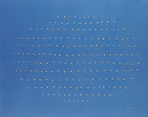Abstract
Casual readers and scholars alike celebrate Petrarch’s Rerum vulgarium fragmenta (RVF) as an early masterpiece of vernacular lyric. Yet Petrarch directed most of his professional energies as writer to Latin composition, in the belief that Latin was the language of his most important literary models and of the literary future. This essay studies Petrarch’s life – in particular, episodes revealing his conflicted attitudes toward the sea and especially toward travel by ship – in order to comment on his attitude toward the language of literature: his respect for Latin, his enduring affection for Italian, and his work on the vernacular lyrics at the very end of his life. The essay uses Theodor Adorno’s formulation of late style (Adorno used this concept to discuss the late work of composers, in particular Beethoven) to describe Petrarch’s late work on the RVF in his last years. It argues that Petrarch’s turn to the vernacular in his final years should be read as a kind of linguistic experimentalism – fragmentary and catastrophic, as Adorno would describe it, rather than sweet, unified and harmonic – made possible when Petrarch is no longer using Latin to think about literary posterity.Except where otherwise noted, the content of this site is licensed under a Creative Commons Attribution-ShareAlike 4.0 International (CC BY-SA 4.0).
Authors retain copyright of their work. The CC BY-SA 4.0 licence allows readers to copy and redistribute the material in any medium or format, and to remix, transform, and build upon the material for any purpose, even commercially, as long as the original author is credited and as long as any works that are derived from the original are distributed under the same terms.
Downloads
Download data is not yet available.

